One of the most important things that you should be doing for your skin is keeping it hydrated. After all, every single cell and tissue in your skin requires moisture in order to function optimally. If your skin doesn’t have access to enough moisture, this is when the problems begin…
So, how do you know if your skin is dehydrated and, most importantly, what can you do about it? Read on as Lavelier talks you through everything you need to know!
Understanding Skin Dehydration
First, let’s talk about the difference between dehydrated skin and dry skin. The two are often confused even though they refer to very different issues.
Dehydration is caused by a lack of water in the skin. It can occur for a number of reasons, with environmental factors being a big one. Everything from cold temperatures to low humidity levels to pollution can cause the water in your skin to evaporate away at a much quicker rate. This is a process known as transepidermal water loss. The faster this occurs, the sooner your skin will feel dehydrated.
Dryness, on the other hand, has nothing to do with your skin’s water content. Instead, this relates to how much sebum your skin produces. Dry skin is dry because it isn’t producing enough sebum. Yes, this can contribute to dehydration since there won’t be enough sebum around to keep moisture locked into the skin but every other skin type, from oily to combination to sensitive, can easily become dehydrated too.
Is Your Skin Dehydrated?
Now that you know what dehydrated skin is, how do you know if this is what you’re dealing with?
Here are eight signs to look out for that indicate dehydration:
- A rough and scaly skin texture. While dry skin often feels rough too, it usually flakes/peels, whereas dehydration causes a harder and bumpier texture.
- A tight and uncomfortable feeling. This is particularly common after cleansing or exfoliating, before you’ve applied any other skincare products.
- Dullness. Due to the lack of moisture, your skin will start to lose its natural radiance.
- Fine lines and wrinkles become more noticeable. The way in which dehydration causes skin cells to almost deflate is why many often confuse dehydration with aging. In addition to enhancing your existing creases, dehydration also causes its own network of tiny lines to spider around the face.
- An increase in sebum production. A lack of moisture causes the skin to try to compensate for this by producing more oil. This then leaves you more prone to clogged pores and acne breakouts.
- A sunken eye area with prominent dark circles. You may also notice that the skin around your eyes looks crepey and puffy.
- Redness, itching, and sensitivities. Dehydration affects skin barrier function, leaving the skin more prone to inflammation and irritation.
- Chapped lips. Cracking is also very common if the skin is dehydrated.
What Should You Do If Your Skin is Dehydrated?
Concerned that dehydration is affecting your skin? Ignoring the issue will only make things worse, making it important to work on rehydrating your skin ASAP, and then keeping those moisture levels consistently topped up. Here’s how to do just that:
Drink (and Eat!) More Water
The most obvious solution to dehydrated skin is to increase your body’s overall hydration levels by drinking more water. If you’re not currently drinking about eight glasses a day, then this could be a big reason behind your dehydration.
Don’t forget that in addition to drinking water, you could also be eating it too to give your skin an extra boost. Certain foods are known for having a particularly high water content, such as:
- Cucumbers
- Tomatoes
- Lettuce
- Watermelon
- Mushrooms
- Spinach
Give Your Skin Multiple Layers of Humectants
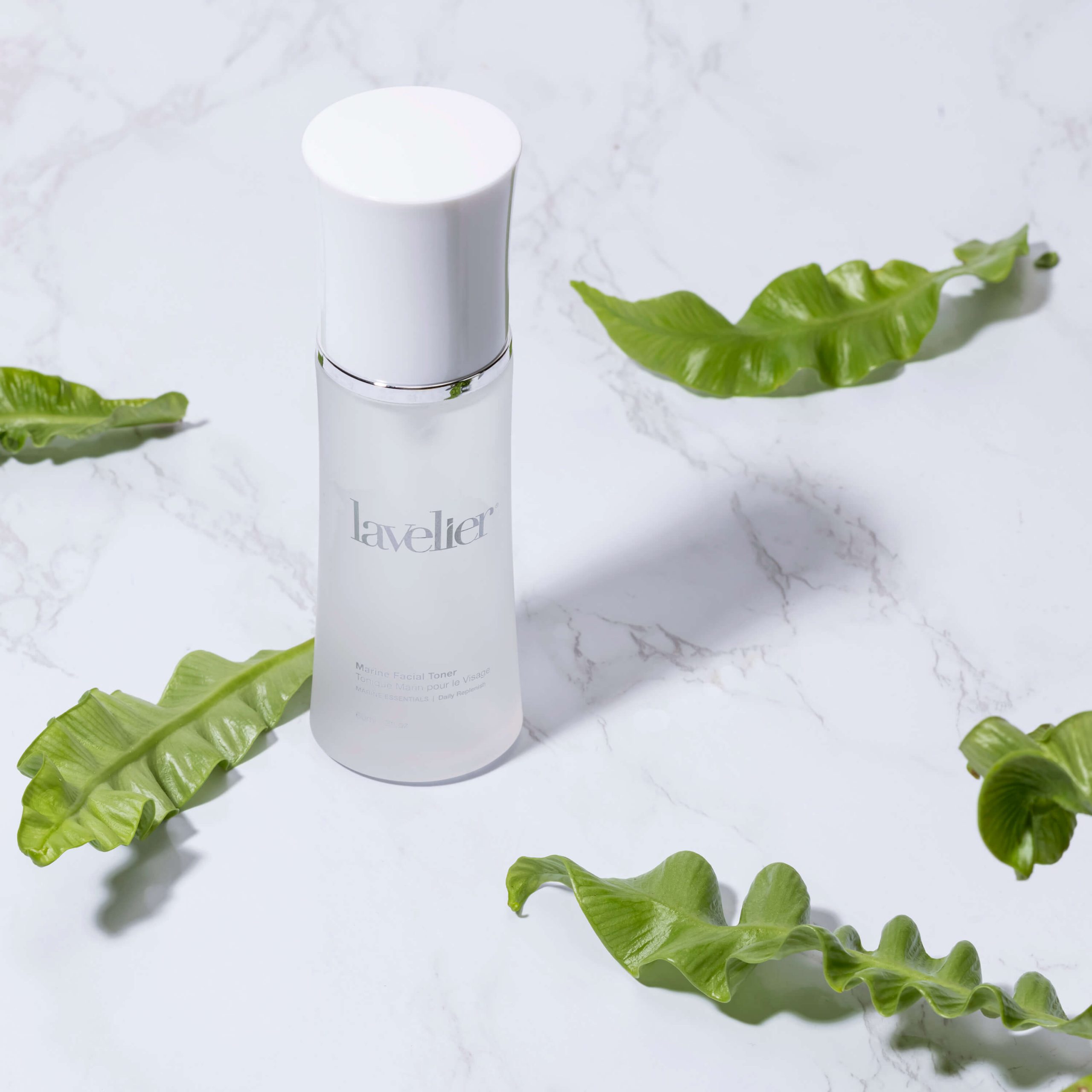
Unfortunately, drinking plenty of water isn’t, on its own, going to be enough to keep your skin hydrated. The water that you drink filters through your essential organs before any leftovers make their way to the skin. By the time this reaches your skin’s outer layers, there isn’t much left.
This is why topical hydration is so important. The best ingredients for this are humectants. These are ingredients that have the amazing ability to bind moisture to the skin. This allows them to immediately leave skin cells looking fuller and plumper, thanks to the almost instant hydration.
Ideally, humectants should be layered onto your skin using a few different products. Each new layer will help to push the previous one in, encouraging absorption.
Not sure how to go about layering humectants?
Start with a hydrating toner, like the Lavelier Marine Facial Toner. It contains aloe vera, cucumber fruit extract, and coral seaweed extract, all of which function as humectants.
Then, follow up with one or two hydrating serums. The Lavelier HydroTherm Sauna Serum would be a great choice as it features a blend of several humectants, including sodium hyaluronate, collagen, coral seaweed extract, peptides, and glycerin. The Oceana VitaGlow C Serum would also work well as it’s packed with hydrating plant oils. Try adding both to your skincare routine for truly spectacular results!
Lock the Hydration in With a Moisturizer
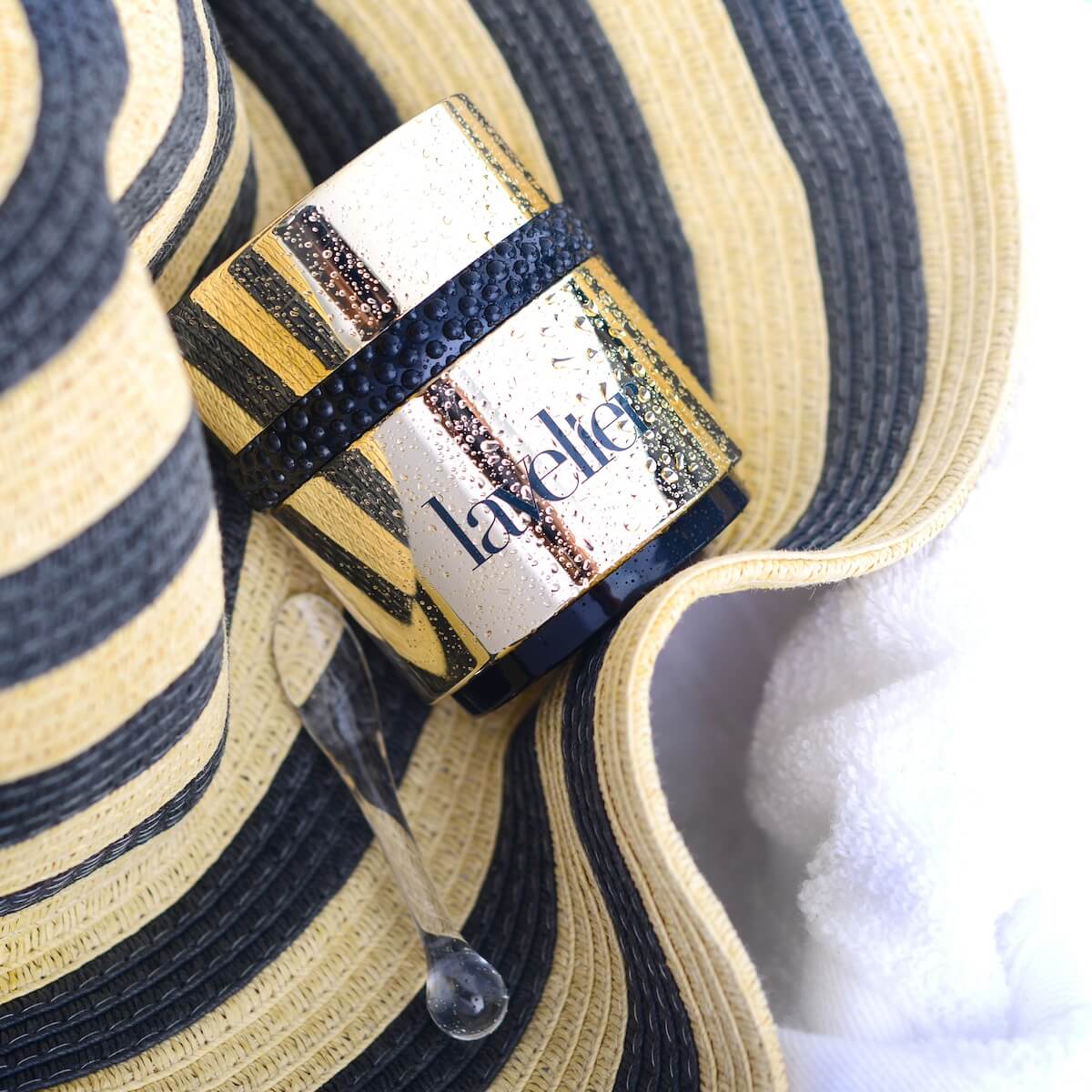
While humectants are great for binding moisture to the skin, it doesn’t take long before that moisture starts to evaporate away. If the air around you is particularly dry, then this will start happening in a matter of seconds.
What can you do about this? Lock all of that hydration in with a moisturizer. The seal that a moisturizer forms over the surface of the skin will help to slow down transepidermal water loss. This will give your skin a chance to make use of that moisture before it all evaporates away.
Of course, the thicker your moisturizer, the thicker the barrier it will create. However, thick moisturizers aren’t for everyone. If your skin type is oily, you need to seal in moisture without clogging pores. Go for a lightweight moisturizer, like the Lavelier Moisture Allure Cream. Meanwhile, if your skin type is dry, a rich moisturizer, such as the Lavelier Marine Deep Moisturizer, would be best.
Protect Your Skin From UV Rays
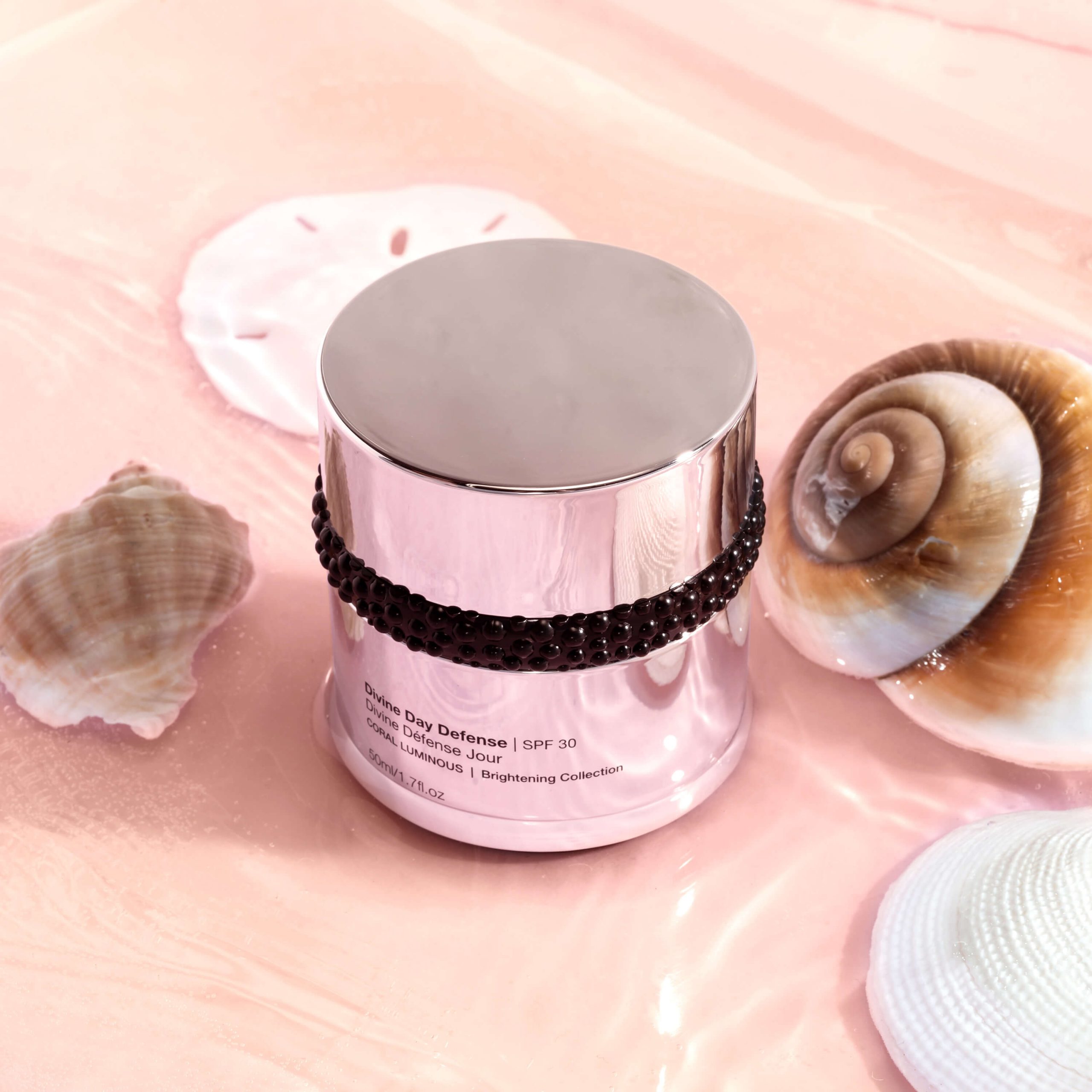
Even if you regularly quench your skin with the best hydrating ingredients around, you won’t be doing much for your skin’s hydration levels if you’re allowing the sun’s UV rays to continually wreak their damage. Not only does direct sunlight immediately deplete the moisture in your skin, but UV rays also cause serious harm to the skin’s natural protective barrier. This then prevents this barrier from working as it should, with one of its roles being to retain moisture. Over time, this will leave your skin more dehydrated than ever.
The obvious solution to this is to keep your skin protected from the sun. However, instead of opting for a regular, run-of-the-mill sunscreen, find a formula that will provide some additional assistance in your quest for maximum hydration. The Lavelier Divine Day Defense SPF 30, for example, not only protects against the sun but also provides some humectants of its own. Between coral seaweed extract, aloe vera extract, vitamin E, and glycerin, it will saturate your skin with moisture.
Invest in Some Hydrating Face Masks
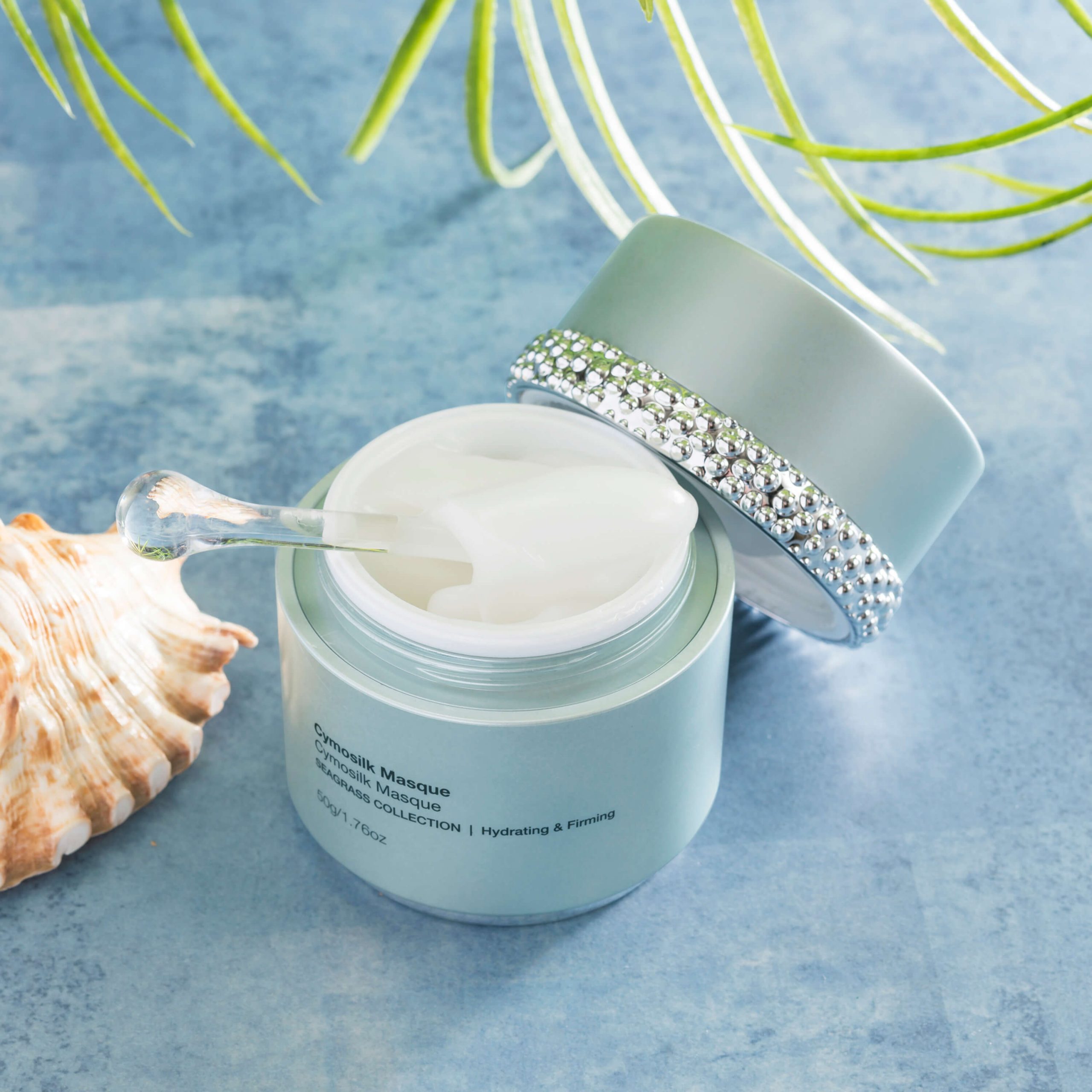
Face masks are such an effective way to give your skin some extra TLC. There are masks out there that are designed to target just about every skin concern imaginable, including dehydration. With masks capable of carrying high concentrations of certain ingredients, they can sometimes bump up the skin’s hydration levels much more efficiently than other skincare products.
So, which face masks are most hydrating?
Sheet masks tend to be at the top of the list. The way in which they form a physical barrier over the skin’s surface helps to push hydrating ingredients deeper down. It also prevents transepidermal water loss for a while, giving your skin time to absorb those ingredients before they start evaporating away. Go for a hydrogel sheet mask, with hydrogel known for its exceptional hydrating properties, and you’ll be taking this to the next level. The Lavelier Coral Luminous Face & Eye Masque is a great one to try!
No-rinse masks can also be extremely hydrating. Unlike other face masks, they’re left on the skin for hours rather than being removed after 10-20 minutes. Find a formula that’s infused with humectants and other hydrating ingredients, like the Lavelier Seagrass Cymosilk Masque, and your skin will look dewy and feel deeply hydrated come morning.
Always Cleanse Before Applying Topical Hydration
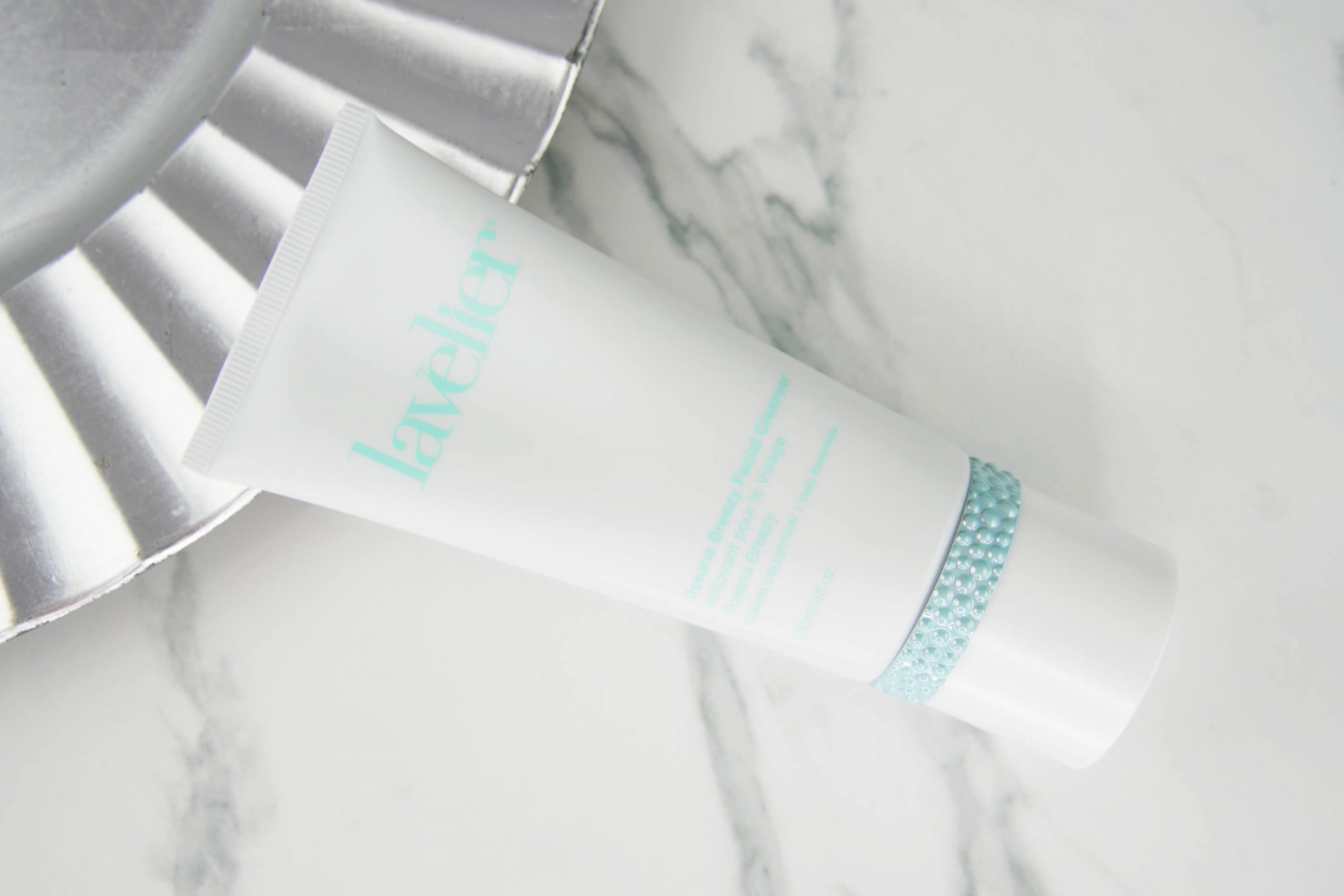
We’ve featured a number of hydrating skincare products above. However, if you don’t first cleanse your skin before applying them, they won’t be able to provide the level of hydration that they’re capable of. Why? Because between the dirt, sebum, dead skin cells, and other impurities that coat your skin, those hydrating ingredients won’t be able to reach your skin cells. Instead, they’ll sit atop that layer of grime, with some evaporating away and the rest contributing to congestion and clogged pores.
With that said, some cleansers can contribute to dehydration too. They contain overly harsh surfactants that strip away sections of the skin’s natural protective barrier while they cleanse the skin. This then increases transepidermal water loss.
So, to cleanse without dehydrating, find yourself a gentle cleanser. Ideally, it should be a formula that will hydrate your skin too, just like the Oceana Breezy Facial Cleanser. Its gentle surfactants will help to keep your skin barrier feeling intact and fully functioning. Meanwhile, the infusion of aloe vera, coral seaweed, argan oil, moringa seed oil, and glycerin brings together some fantastic humectants. They’ll bind moisture to your skin while also helping to condition your skin, leaving it feeling smoother and softer.
Summary
Due to the fact that the symptoms of dehydration are also experienced when dealing with other skin concerns, it can sometimes take a while for people to realize that their skin is dehydrated. However, once you do, it’s important to take action. Work on increasing your skin’s hydration levels while preventing further dehydration and you’ll soon have a plump and supple complexion that you can be truly proud of!
Click here to browse more hydrating skincare bestsellers from Lavelier.


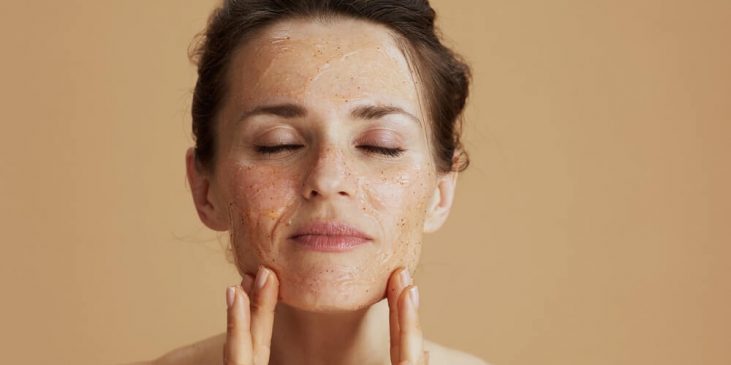

0 comments on “8 Signs Your Skin is Dehydrated and How to Fix it”